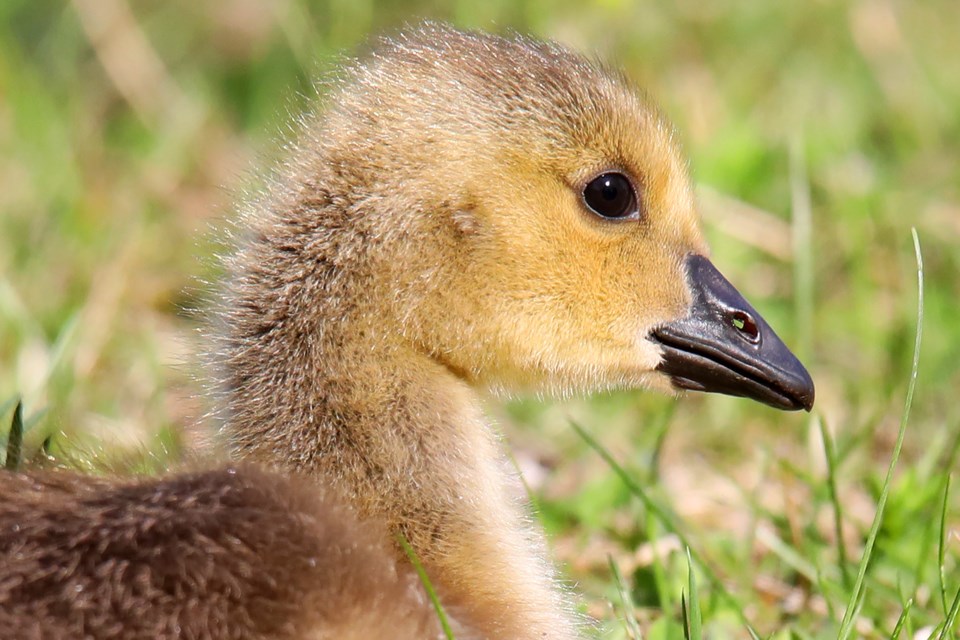BarrieToday welcomes letters to the editor at [email protected]. Please include your daytime phone number and address (for verification of authorship, not publication).
Water is the lifeline of all life on Earth.
The United States Geological Survey shows 71 per cent of Earth is covered in water, 96.54 per cent is salt water found in oceans, and a mere 1.69 per cent is groundwater, while less than one per cent is found in lakes.
David Suzuki, our world-renowned Canadian environmentalist and scientist, constantly reminds us “water is life.”
The theme this year for World Migratory Bird Day on May 13 is Water — Sustaining Bird Life.
The Audubon Society reports the value of birds cannot be overstated. Many birds in tropical countries pollinate your favourite fruit. Here in Ontario, the ruby-throated hummingbird is a master pollinator as its long beak can reach down into long-throated flowers. We can help ruby-throated hummingbirds thrive by planting red flowers and hanging up hummingbird feeders. You can also help birds by installing a bird bath with a fountain as birds are attracted to moving water.
Bird droppings, known as guano, have been recognized as important fertilizer from early times. The nitrogen in sea bird droppings has been especially helpful in promoting the growth of native plants on barren landscapes.
The regrowth of forests is boosted by the tree seeds found in the droppings of birds as they fly across our vast land.
ScienceDaily reports birds around the world eat 400 million to 500 million metric tonnes of beetles, flies, ants, moths, aphids, grasshoppers, crickets and other arthropods per year. This pest-eating service adds billions to the economy every year.
Vultures perform a valuable service by eating dead animals. Since they rarely come in contact with humans, vultures serve as a barrier to prevent diseases from proliferating in dead animals and spreading to humans. A serious decline in vulture populations has resulted in feral dogs in many countries eating carrion and spreading deadly rabies.
The Lake Simcoe Region Conservation Authority tells us Lake Simcoe supports an astounding 141 species of birds.
Soon, millions of birds will be migrating north and they all depend on healthy aquatic ecosystems to keep them healthy and strong. Unfortunately, Lake Simcoe faces a number of issues affecting its ecological health.
One major challenge facing the lake is algae bloom triggered by too much phosphorus and nitrogen entering the watershed. Recently, a study demonstrated algae bloom, in addition to killing cold-water fish such as trout and herring, jeopardizes the health and life expectancy of songbirds by compromising their immune systems and reproductive rates, and contributing to weight loss. Importunately, algae bloom is particularly harmful to migrating birds on their long and arduous journeys north.
Residents can help reduce algae bloom by avoiding the use of chemical fertilizers rich in nitrogen and phosphorus on their lawns.
The conservation authority reports Lake Simcoe faces another existential threat. Excessive salt from roads, parking lots, and sidewalks is entering the lake at an alarming rate. Right now, models indicate 64 per cent of plant and animal life is detrimentally affected by salt contamination. If salt concentrations continue to increase at the current rates, we will exceed the chronic exposure guidelines by 2110, the conservation authority warns.
When a lake’s salt concentration keeps increasing, the sources of food for wildlife including migratory birds decrease. Only marine birds have built-in water-desalination systems. Too much salt will eventually weaken and kill non-marine birds. As insect-eating birds die off, we will see an increase in mosquitoes.
There are alternatives to salt, such as using brine salt and beet juice to de-ice roads. In Barrie, the good news is the city uses salt brine and molasses quite successfully on arterial roads while sanding other roads.
To reduce the amount of salt being used, residents and municipalities can work together by applying best practices that have been developed. In the Lake Simcoe watershed, many owners of large parking lots, and snow plow operators, have been trained in the Smart About Salt program developed by the University of Waterloo.
Finally, as residents of a Bird Friendly City, we can all take actions by writing to our government representatives, and joining organizations such as Nature Barrie, the Rescue Lake Simcoe Coalition, Living Green, and AWARE Simcoe.
On Saturday, May 13, World Migratory Bird Day, Nature Barrie will host a bird walk, starting at the Spirit Catcher, from 10:30 a.m. to 12 p.m., rain or shine. Register by emailing [email protected].
Gwen Petreman
Barrie



